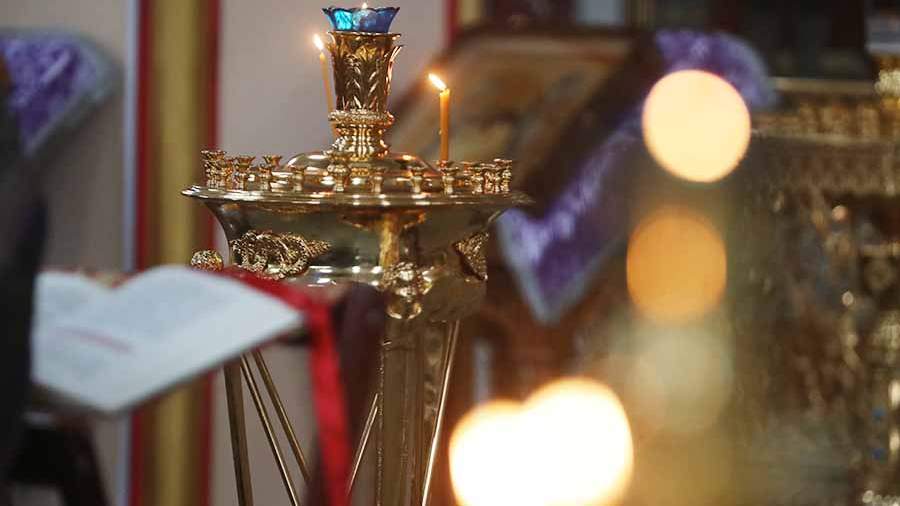March 28 — Alexander Day: history, traditions, folk signs

Every year on March 28, the Orthodox Church honors the memory of the Holy Martyr Alexander of Sidsky and eight other martyrs: two Alexanders, Agapius, Puplia, Romila and others. In 2025, the celebration falls on a Friday. In the national calendar, this date is called Alexander's Day or Forest grooming. Read about the traditions and prohibitions associated with this holiday in the Izvestia article.
Alexander's Day in 2025 — history
The Holy Martyr Alexander lived in the 3rd century AD. He served as a priest in Side and openly professed faith in Christ. During the reign of Emperor Aurelian (270-276), the persecution of Christians began again in the Roman Empire. The ruler of Pamphylia, Antoninus, wishing to curry favor, summoned the saint for questioning. After that, Alexander was called a madman and tortured.
When the priest bravely endured all the suffering, the governor ordered him to be beheaded. According to legend, as soon as the execution was completed, Antonin began to have a seizure, and he died without leaving the bench. Alexander's body was taken away and buried by a pious Christian.
The Holy Martyrs Puplius, Timolaus, Dionysius, Subdeacon Romil, and two Alexanders lived in Caesarea of Palestine at the turn of the third and fourth centuries during the reign of Emperor Diocletian. Once, during a pagan festival, idolaters began publicly torturing and executing Christians who refused to sacrifice to false gods. Seeing the sufferings of their brothers in faith, the young men decided to share their fate and openly profess their faith. They tied their own hands and came to court.
Seeing the youth of the saints, the head of the city tried to dissuade them from such an unreasonable act, but they stood their ground. Then they were thrown into prison with other Christians, Agapius and Dionysius, who were already suffering torments for Christ. All the saints were severely tortured and soon executed.
Traditions for Alexander's Day in 2025
In Russia, Alexander's Day was also called Forest grooming. In pre-Christian times, it was customary to worship the forest on this holiday as one of the important sources of food: berries, mushrooms, game, etc. Before going into the thicket, people paid homage to the trees and forest spirits, apologizing for the intrusion.
On this day, experts in the medicine business collected useful herbs, updating stocks for various tinctures and medicines. It was believed that plants had a special power on the holiday. Rituals were also performed for Forest grooming, amulets were made and spoilage was removed.
In some regions, Alexander's Day fell during the period of the so-called wolf weddings. At this time, the animals are looking for a mate and actively move from place to place, often going beyond their territories. The nature of predators is also changing — they become more aggressive and can behave unpredictably. Therefore, people tried to avoid encounters with wolves.
What can and cannot be done on Alexander's Day in 2025
A believer should attend church services or take time to pray at home. Do not forget that Alexander's Day falls on Lent. Those who are ill should not eat meat, dairy products, fish and eggs. You should also refrain from noisy feasts and attending entertainment events. It is important to remember that fasting is not a "diet", but a period of intense spiritual work, self—knowledge and self-improvement. At the same time, food restrictions play an auxiliary role as an element of self-discipline.
According to popular beliefs, on Alexander's Day, you can't start cleaning closets and sorting through old things. Violating this prohibition could lead to poverty and deprivation. They also avoided shampooing on the holiday, fearing separation from loved ones.
In addition, dogs and black cats were not offended that day. People believed that harm caused to animals would result in the loss of an old friend or lack of luck.
On Alexander's Day, many were afraid of spoilage, so they did not leave the house without a pin pinned on the inside of their clothes. In addition, they tried not to sleep on a warm pillow during the holiday, so as not to encounter insomnia.
Alexander's Day on March 28, 2025 — folk signs
On Alexander's Day, people in the villages closely monitored the behavior of birds, hoping to predict the weather for the coming days. The loud chirping of sparrows heralded warmth and a clear sky. If the seagulls were splashing in the water, they were waiting for bad weather, and if the birds avoided reservoirs, they were preparing for an early ice break. Larks or cranes flying overhead indicated warming, and finches indicated frosts.
There were also exceptionally natural signs. So, the bright sunset indicated that the rains would start soon. If the morning turned out to be gloomy, precipitation was expected by the evening. And the slow flow of the streams promised not the most fruitful year.
Earlier, Izvestia told how Orthodox believers celebrate Nikiforov Day and what traditions are associated with it.
Переведено сервисом «Яндекс Переводчик»


